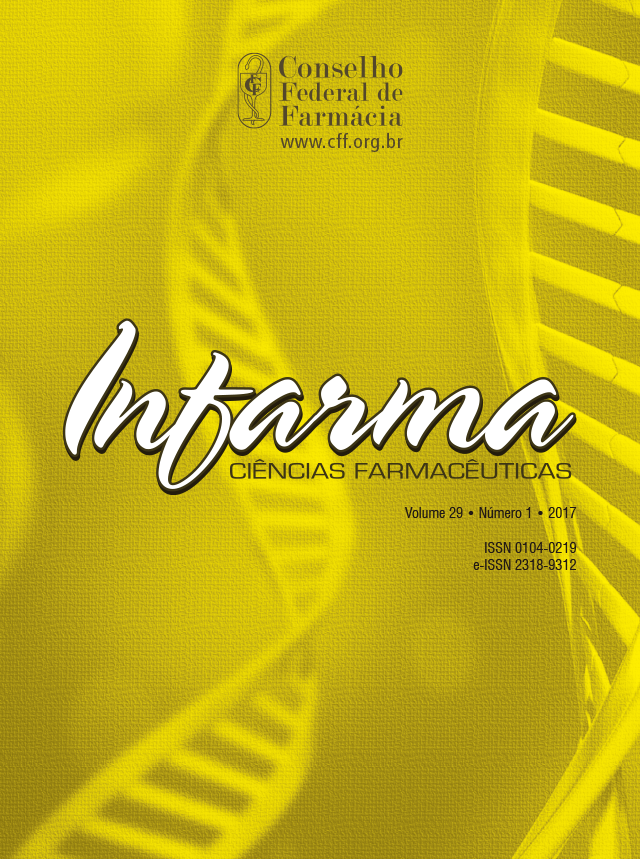EVALUATION OF THE LABELING OF VITAMINS AND MINERALS SUPPLEMENTS
DOI:
https://doi.org/10.14450/2318-9312.v29.e1.a2017.pp3-4Keywords:
dietary supplements, micronutrients, food labeling.Abstract
Vitamins and minerals are essential to the optimal functioning of the human body. To ensure the intake of proper amounts of these nutrients, many consumers take vitamin and/or mineral supplements that should contain, at least 25% and, at most, 100% of the daily recommended intakes (DRI). Considering their commercial relevance and the influence of supplements on human health, the conformity to legal specifications of the labeling of vitamin and mineral supplements marketed in 10 drugstores in Teresina-PI (July 2016), was evaluated. The field research consisted of a quantitative observational study of the data contained on the labels of all of the products containing vitamins and/ or minerals as determined by current legislation. Information was colleted from 208 products, including medications, although only the supplements were evaluated according to legislative requirements (Ordinance Law nº 32/1988). It
was observed that only 49% of the supplements analyzed respected all labeling requirements of the current legislation.
Incorrect product designation (67.9%) and flaws in the mandatory warnings (35.9%) were the most common mistakes.
The lack of basic labeling information makes the choice of the correct supplement more difficult for customers, thus reinforcing the need for the presence of health professionals to assist consumers in selecting ‘reliable supplements and to indicate their proper use.
Downloads
Published
How to Cite
Issue
Section
License
Authors who publish in this journal agree to the following terms:
- Authors retain the copyright and grant the journal the right of first publication, with the work simultaneously licensed under the Licença Creative Commons Attribution which allows the sharing of work with acknowledgment of authorship and initial publication in this journal.
- Authors are authorized to take additional contracts separately, for non-exclusive distribution of the version of the work published in this journal (e.g. publish in institutional repository or as a book chapter), with acknowledgment of authorship and initial publication in this journal.
- Authors are allowed and encouraged to publish and distribute their work online (e.g. in institutional repositories or on their personal page) at any point before or during the editorial process, as this can generate productive changes as well as increase the impact and Citation of published work (See O Efeito do Acesso Livre ).


